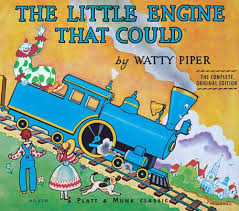
October 16th. You know what that means. It’s Man Booker Day, the day five judges will meet at a secret location in a not-so-secret city called London to pluck a winner from the shortlist (it should take eight hours or so).
What’s in it for the authors? Most excellent sales, for one thing. Not that being on the shortlist hurts sales any, but being on the shortest list of all is downright painless. Man Booker’s been an up-and-comer, after all, among literary prizes. A win is a ka-ching, not to mention an ego booster rocket.
The shortlisted six-pack of novels, detailed here, come from a list that originally spanned 171 books long. The five judges had all of seven months to plow through those books’ pages, but you’ll be happy to know that some of the books (the amount varied by judge) were left unfinished. As crime writer Val McDermid—one of the 2018 judges—put it, “To be honest, there’s some when you’re not very far into it and you think, ‘This is not going to win the Booker Prize’.”
McDermid was interviewed for The New York Times about her experience as a Man Booker judge, and as a writer who reads reading about a writer who reads for the Booker, I especially appreciated the following insight about the experience:
“It has provoked a restlessness in me. I am thinking about how I can push my own writing in different directions and not do the same things again and again and again. If you’re a writer, everything you read gives you pause: You’re always looking for something you can steal or something you want to avoid. This has really taken me outside the usual tramlines of what I read.
“One other thing I’d say is that if you’re a writer, you’re someone who very quickly becomes a critical reader. It’s not as easy to find unmitigated pleasure in a book. It’s rare I find a book so absorbing I don’t ever think about technique while reading it. That happens about half-a-dozen times a year.”
So true about getting in writing ruts, isn’t it? We hate to admit as much, but sometimes such confessions lead to the tabula rasa a writer needs to get someplace.
Ditto the bit about learning what to “steal” and what to avoid. Reading is the fuel of every writing machine (or, to humanize it, the water of every writing being). You learn by others’ successes and mistakes, and it all trickles down into that messy but colorful pastiche that comprises your own writing canvas.
So read like a Booker judge, why don’t you. Paradoxically, all that reading will generate bursts of unforeseen (and improbably fresh) writing.
Nota bene: If you’re interested in reading the complete interview of McDermid, you can jump through this looking glass. Meanwhile, enjoy tonight’s Booker Award party. These days, there’s a party for everything, seems….









